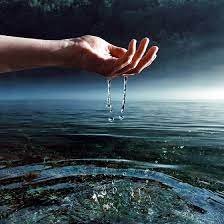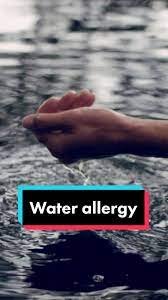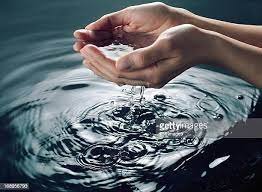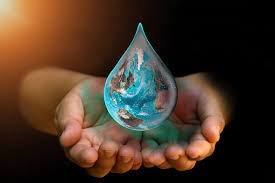Aquagenic urticaria (water allergy)-- A rare disease that can turn water into an enemy of man
Aquagenic urticaria is an extremely rare form of urticaria (hives) that causes a rash to appear after you touch water. The hives may appear red or similar to the color of your skin tone. They may be harder to see on darker skin. Aquagenic urticaria also known as water allergy is a rare condition that leads to itchy hives and swelling when the skin comes in contact with water.Aquagenic urticaria causes
Only about 50 cases of aquagenic urticaria have ever been reported, according to a 2016 paper published in the Journal of Asthma and Allergy.
It’s a form of chronic inducible urticaria (CIndU) associated with swelling, itching, and burning.According to Mauer, one hypothesis is that contact with water causes skin proteins to become auto-allergens, which then bind to receptors on skin allergy cells. However, research is limited because of the extremely low numbers of patients with aquagenic urticaria, and there's still little evidence to support any hypothesis.
Urticaria, or hives, can range from a few millimeters (mm) to several centimeters in size and may appear anywhere on the body. In aquagenic urticaria, the hives are usually only 1–3 mm in size. Hives are itchy and may cause discomfort.
There are other types of more common urticaria that someone may mistake for aquagenic urticaria, which is a rare condition.
These conditions include:
Cold urticaria and cholinergic urticaria, known as heat hives.
WHAT ARE THE SYMPTOMS?
Aquagenic hives appear as a scratchy, stinging rash. This rash usually occurs on the chest, neck, and arms. Sometimes hives can appear anywhere on the body except on the soles of the feet and palms of the hands.
Within minutes of being exposed to water, people with this condition can experience:
•erythema, or reddening of the skin
burning or prickling sensations
•welts
•inflammation
•rash
For some people, drinking water can cause them to experience symptoms including:
•swollen lips
•rash around the mouth
In more severe cases, you may develop the following symptoms of anaphylaxis:
•difficulty swallowing
•wheezing
•shortness of breath or difficulty breathing
•Seek immediate medical attention if you experience anaphylaxis.
OTHER SYMPTOMS A PERSON CAN EXPERIENCE ARE:
•skin lesions
•burning sensation
•inflammation
•reddening of the skin
•itching
Some people may also experience rarer symptoms, such as shortness of breath and wheezing. The symptoms generally subside when water is no longer in contact with a person’s skin. It takes approximately 30–60 minutes for symptoms to subside.

Source
CAUSES
The exact causes that lead to water allergy are still unclear. Limited evidence suggests that water may dissolve allergenic substances on the skin surface. This may activate allergy cells, or mast cells, either on the skin’s surface or deeper after penetration through the skin’s top layer. And even though the course of aquagenic urticaria is unpredictable, doctors have noticed that it tends to fade later in life. Most patients experience spontaneous remission after years or decades of having it.
In another proposed mechanism, water may interact with skin oils, or sebum, from the skin’s oil-producing glands to directly irritate allergy cells and cause the release of allergy-related proteins called histamines.
It is important to note that researchers have not widely studied the causes of aquagenic urticaria. Further research into the causes of water allergies is necessary to better understand the condition.
TREATMENT
Although there is currently no cure for water allergies, several treatment options are available to alleviate the symptoms. However, it is important to note that due to the condition’s rarity, scientists have not widely studied its treatment. Make sure the skin is completely dried immediately it gets in contact with water.
Preventing further flare-ups
Once you receive your doctor’s diagnosis of aquagenic hives, it is best to avoid touching water.
Still, this isn’t practical for everyday life. So, try to restrict your contact with water as much as possible.
SOME COMMON TREATMENT OF AQUAGENIC URTICARIA ALSO INCLUDE:
•Oral antihistamines: Since histamine causes several symptoms of aquagenic urticaria, antihistamines may serve as the first line of treatment.
•Topical therapies: A person applies topical medications to the skin, which absorbs these medications. Oil-based emulsions and petrolatum-containing creams may treat water allergy symptoms in some people.
•Phototherapy: A doctor may suggest phototherapy if oral and topical treatments do not produce the desired results. Phototherapy involves UV radiation, and a doctor may use it alongside antihistamine therapy.
A person should speak with a doctor if they believe they have an allergy. Water allergy may have symptoms that overlap with other more common types of hives, such as cold-induced hives known as cold urticaria or heat-induced hives known as cholinergic urticaria. A doctor can help diagnose the type of urticaria and provide treatment.
Overall, further resources are needed to fund more research and clinical trials for treatments of aquagenic urticaria. In the meantime, the global network of urticaria centers of reference and excellence features urticaria specialists and can help patients manage this rare condition.
Most cases begin in or shortly after puberty and are most common in persons assigned female at birth. Additionally, genetics may play a role.
Various water sources can trigger hives from this condition, including:
•rain
•snow
•freshwater
•seawater
•sweat
•tears
Aquagenic urticaria is also different from a cold allergy or cholinergic urticaria, which is an allergic reaction to heat. The reaction caused by aquagenic urticaria occurs directly from exposure to water, regardless of its temperature.
HOW IS THIS DIAGNOSED?
To diagnose aquagenic hives, your doctor will conduct a physical exam to observe your symptoms. They’ll also review your medical history and may also perform a water challenge test.
During this test, your doctor will apply a room-temperature water compress to your upper chest for 30 minutes. This test is done to trigger a reaction.
Your doctor will record your reaction to the water challenge test and compare it to symptoms of a similar condition called aquagenic pruritus. The difference between these two disorders is that aquagenic pruritus causes itching and irritation but doesn’t cause hives or reddening.
Preventing a flare-up includes:
•apply mineral oil or 100% petroleum jelly to the skin before showering
•using dry shampoo and waterless cleansers in-between showers
taking short, periodic showers
•wearing clothes that draw moisture away from the skin
•wearing cotton-lined dishwashing gloves when cleaning.
DOES AQUAGENIC URTICARIA EVER GO AWAY?
So few people worldwide have aquagenic urticaria that it is unknown if it will resolve on its own.
Can someone with aquagenic urticaria drink water?
Some people with aquagenic urticaria can drink water if they keep it off their skin. Even so, a more severe allergy can develop anytime, causing swollen lips and irritation inside the mouth and throat. In the worst cases, anaphylaxis, a life threatening reaction, can occur when drinking water.
HOW DO YOU SHOWER WITH AQUAGENIC URTICARIA?
If you have aquagenic urticaria, applying a barrier of 100% petroleum jelly to the skin before showering is best. Doctors also recommend short showers and limiting the number of showers. It is best for a person with aquagenic urticaria to determine a showering schedule based on a doctor’s advice because a severe allergic reaction can happen anytime.
WHAT IS THE LIFE EXPECTANCY FOR AQUAGENIC URTICARIA?
There are no published studies on life expectancy for those with aquagenic urticaria. That said, the risk of a severe allergic reaction to water is higher in persons without medical evaluation and treatment. Working with your doctor, you can decrease the risk of an allergic reaction and improve your quality of life.
REFERENCES:



Copying/Pasting content (full or partial texts, video links, art, etc.) with adding very little original content is frowned upon by the community. Publishing such content could be considered exploitation of the "Hive Reward Pool" and may result in the account being Blacklisted.
Please refrain from copying and pasting, or declining the rewards on those posts going forward.
If you believe this comment is in error, please contact us in #appeals in Discord.